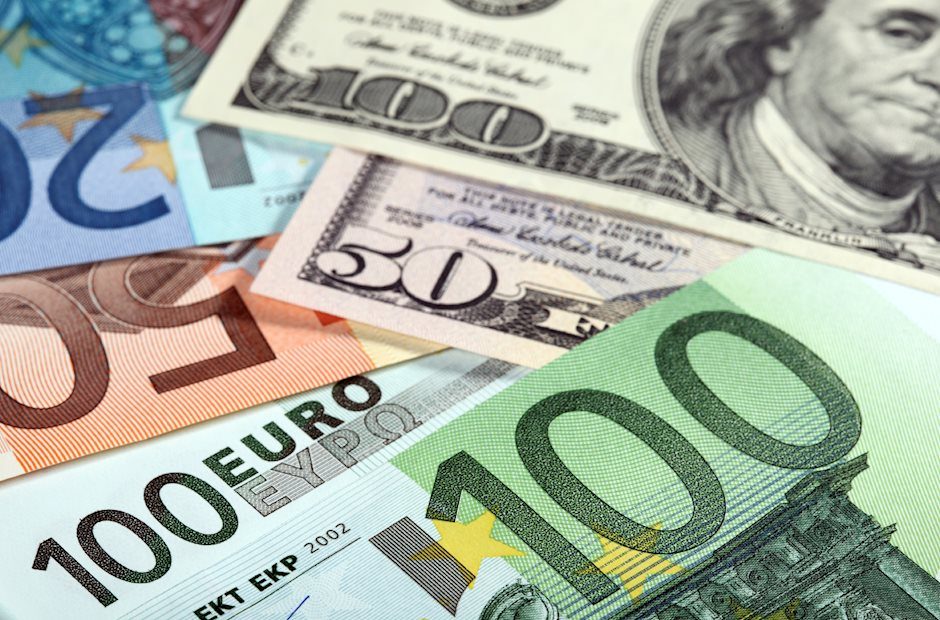Euro gathers strength ahead of key central bank meetings
- Euro gathers strength ahead of key central bank meetings.
- Euro benefits from the expected ECB rate hike despite fears of a recession in Europe.
- EUR/USD continues to edge higher after US inflation data.

The Euro (EUR) finds demand on Tuesday as investors adjust their positions while preparing for the highly-anticipated central bank policy announcements. The EUR/USD pair gathered bullish momentum and climbed above 1.0800 for the first time in three weeks.
The Euro's performance is likely to be impacted by President Lagarde's June interest rate decision announcement in the second half of the week. Meanwhile, the Euro continues to outperform the US Dollar as markets fully price in a pause in the Federal Reserve rate hikes in June after the data from the US showed that annual CPI inflation declined to 4% in May from 4.9% in April.
Daily digest market movers: Euro preserves its strength on Tuesday
- The data from Germany showed that the CPI rose 6.1% on a yearly basis in May, matching the initial estimate.
- The German ZEW headline number showed that the Economic Sentiment Index unexpectedly improved in June, arriving at-8.5 from -10.7 seen in May while beating the market expectation of -13.0. However, the Current Situation Index slumped to -56.5 from -34.8 prior, missing the market expectation of -40.0 by a wide margin.
- ECB President Christine Lagarde is expected to raise interest rates by 25 basis points (bps) to 4.25% despite deepening fears of a recession in Europe.
- The final reading of the Eurozone’s Q1 Gross Domestic Product (GDP) contracted by 0.1%, led by constantly declining factory activities.
- Previewing the ECB meeting, "we expect a 25 bps rate hike along with indications from the ECB that it expects persisting inflation in the Eurozone and does not believe financial conditions have tightened enough to threaten growth, could spur further front-loading of rate hikes and support the Euro," said Economists at Crédit Agricole. "However, we expect the Euro to consolidate mainly against currencies with dovish central banks or banks that have signaled the peak of their tightening cycle, such as the Japanese Yen and the New Zealand Dollar."
- The German economy has already registered a recession after reporting two consecutive quarters of contraction.
- An interest rate hike by the ECB and an unchanged policy stance by the Fed would trim the ECB-Fed policy divergence.
- US Unemployment Rate has climbed to 3.7% and weekly Initial Jobless Claims have been increasing straight for the past three weeks. US Factory activities have been contracting straight for the past seven months and the service sector is hardly showing any expansion.
- Former Dallas Fed Bank President Robert Kaplan said in an interview that he would support a "hawkish pause" at this week's meeting.
- Fed chair Jerome Powell announced that more interest rate hikes are less certain as tight lending conditions by United States commercial banks are barricading inflationary pressures.
- US President Joe Biden is going to announce Federal Reserve Vice Chair and will fill the vacant Fed Board seat on June 21 before the Senate Banking Committee. Fed Governor Philip Jefferson is expected to be the next vice chair, and an open Fed Board seat would be equipped by economist Adriana Kugler.
Technical Analysis: Euro trades near key pivot level
The Euro is confidently driving the major currency pair higher in a Rising Channel chart pattern on a four-hour scale in which each corrective move is considered a buying opportunity by the market participants. EUR/USD has refreshed its three-week high around 1.0800, however, the 200-period Exponential Moving Average (EMA) at around 1.0800 might act as a barricade for the Euro bulls.
Buyers could show more interest if the EUR/USD manages to sustain comfortably above 1.0800. The upside bias could be ruined if the major currency pair drops below June 12 low of 1.0733.
ECB FAQs
What is the ECB and how does it influence the Euro?
The European Central Bank (ECB) in Frankfurt, Germany, is the reserve bank for the Eurozone. The ECB sets interest rates and manages monetary policy for the region.
The ECB primary mandate is to maintain price stability, which means keeping inflation at around 2%. Its primary tool for achieving this is by raising or lowering interest rates. Relatively high interest rates will usually result in a stronger Euro and vice versa.
The ECB Governing Council makes monetary policy decisions at meetings held eight times a year. Decisions are made by heads of the Eurozone national banks and six permanent members, including the President of the ECB, Christine Lagarde.
What is Quantitative Easing (QE) and how does it affect the Euro?
In extreme situations, the European Central Bank can enact a policy tool called Quantitative Easing. QE is the process by which the ECB prints Euros and uses them to buy assets – usually government or corporate bonds – from banks and other financial institutions. QE usually results in a weaker Euro.
QE is a last resort when simply lowering interest rates is unlikely to achieve the objective of price stability. The ECB used it during the Great Financial Crisis in 2009-11, in 2015 when inflation remained stubbornly low, as well as during the covid pandemic.
What is Quantitative tightening (QT) and how does it affect the Euro?
Quantitative tightening (QT) is the reverse of QE. It is undertaken after QE when an economic recovery is underway and inflation starts rising. Whilst in QE the European Central Bank (ECB) purchases government and corporate bonds from financial institutions to provide them with liquidity, in QT the ECB stops buying more bonds, and stops reinvesting the principal maturing on the bonds it already holds. It is usually positive (or bullish) for the Euro.
Author

Sagar Dua
FXStreet
Sagar Dua is associated with the financial markets from his college days. Along with pursuing post-graduation in Commerce in 2014, he started his markets training with chart analysis.

















